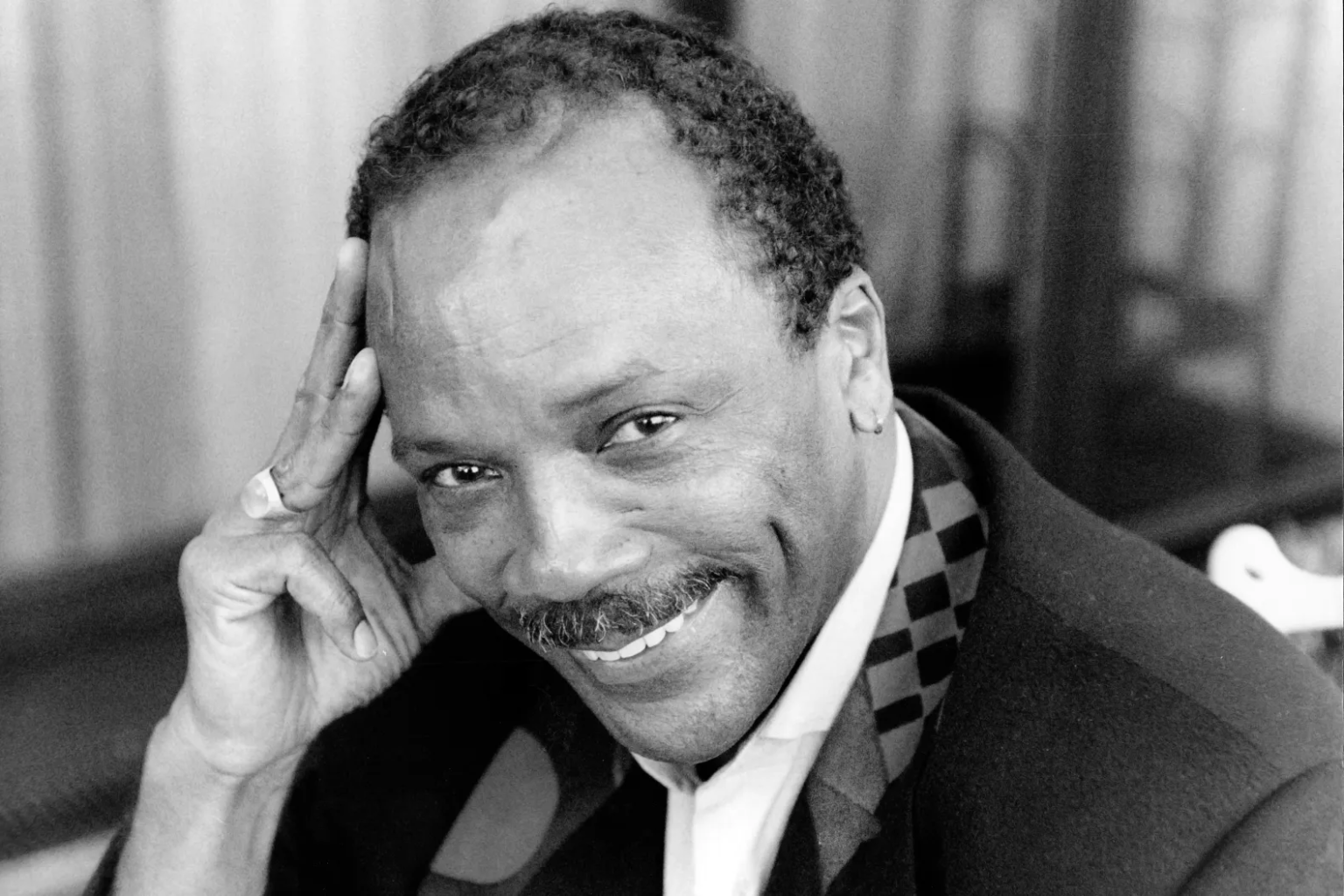Did Quincy Jones pass away?
Quincy Jones, one of the most influential figures in American music and entertainment, passed away at the age of 91 at his home in Bel Air, California. The acclaimed composer, producer, and industry mogul was surrounded by his family, according to his publicist, who announced the news on behalf of the Jones family. Known for his exceptional talent, relentless innovation, and profound impact on music, Jones leaves behind an unparalleled legacy in jazz, pop, and R&B, including iconic collaborations with artists like Michael Jackson, Frank Sinatra, and Ray Charles.

Michael Jackson and Quincy Jones at the 1984 Grammy awards. (Image Credit: Doug Pizac / AP)
The Jones family released a heartfelt statement following his passing, saying, “With full but broken hearts, we must share the news of our father and brother Quincy Jones’ passing. While this is an incredible loss, we take immense pride in knowing his love and joy were shared worldwide through all that he created. Quincy’s heart will beat for eternity through his music and boundless love.”
The Musical Visionary Behind “Thriller” and Other Groundbreaking Albums
For many, Quincy Jones is synonymous with Michael Jackson’s Thriller, the best-selling album of all time, which showcased Jones’ genius as a producer and his keen sense for blending diverse musical genres. Jones and Jackson also collaborated on Off the Wall and Bad, creating a sound that would define an era and cement Jackson’s place as the King of Pop. Tracks like “Billie Jean” and “Beat It” displayed Jones’ genre-bending approach, with guitar legend Eddie Van Halen adding a hard rock edge to the latter track, and horror icon Vincent Price lending his voice to the ghoulish voiceover on the title song “Thriller.”

The Quincy Jones-Michael Jackson collab created not only chart-topping hits but also groundbreaking music videos that revolutionized the industry. This unique approach helped Jones build an enduring legacy in pop music, and his work with Jackson alone influenced artists and producers across generations.
A Career Spanning Jazz, Film, and Television
Quincy Jones’ career began in jazz, where he quickly rose to prominence as a trumpet player, bandleader, and arranger. Working with the likes of Count Basie, Duke Ellington, and Dizzy Gillespie, Jones honed his skills and eventually found himself arranging music for stars like Frank Sinatra. Their collaboration on “Fly Me to the Moon” turned the classic into a swing hit, and Jones’ versatility soon opened doors in Hollywood.

In film and television, Jones excelled as a composer, scoring soundtracks for over 50 movies and shows, including In the Heat of the Night and The Italian Job. He produced Steven Spielberg’s The Color Purple, and his television production company famously launched The Fresh Prince of Bel-Air, the hit sitcom that launched Will Smith’s career. Jones’ production company was also behind numerous other series, cementing his impact on popular culture far beyond music.
A Lasting Impact Shaped Our Music and Culture
Throughout his career, Quincy Jones remained committed to social causes, using his influence to support civil rights, advocate for racial equality, and mentor young musicians. His production of the charity single “We Are the World” raised millions for famine relief in Africa and brought together an all-star ensemble including Lionel Richie, Stevie Wonder, and Diana Ross.

With 28 Grammy Awards from 80 nominations and numerous honors, including the Kennedy Center Honors and France’s Legion of Honour, Quincy Jones death remains a monumental lost to the arts. From jazz and pop to film, TV, and philanthropy, his influence resonates through nearly every aspect of modern entertainment.
A Final Farewell
Quincy Jones death leaves a void in the world of music that may never be filled. His contributions helped shape not only American music but the global soundscape, transcending genres and generations. For those who worked with him, including Michael Jackson, Frank Sinatra, and Will Smith, his mentorship and vision were transformative. His legacy will continue to inspire future artists and fans worldwide, as they listen to the unforgettable music he left behind.


